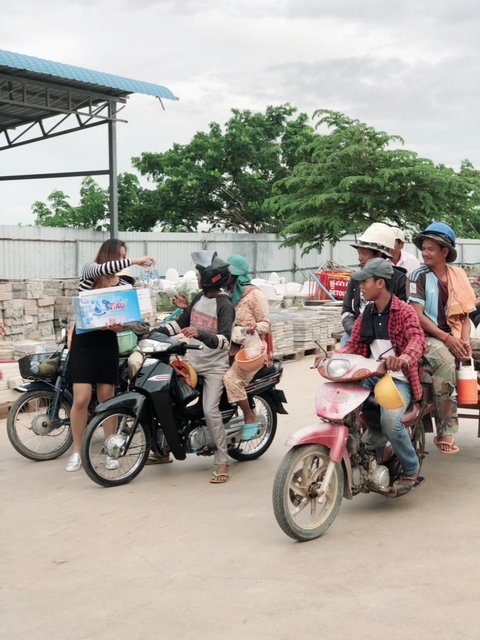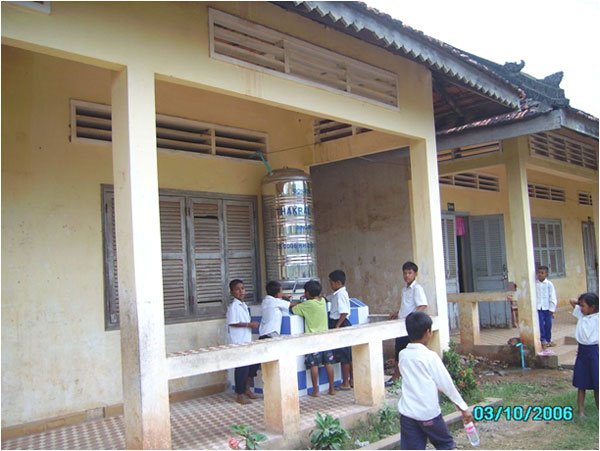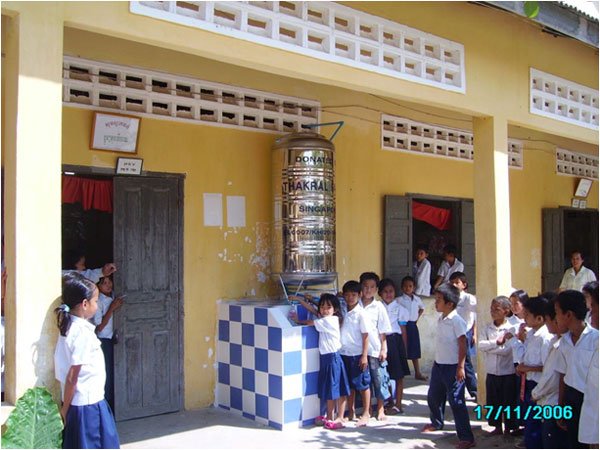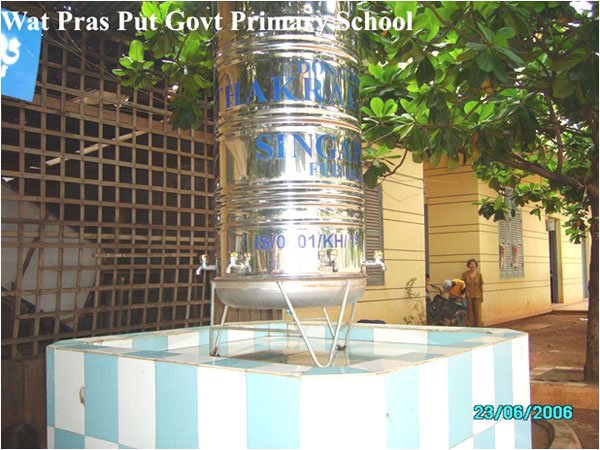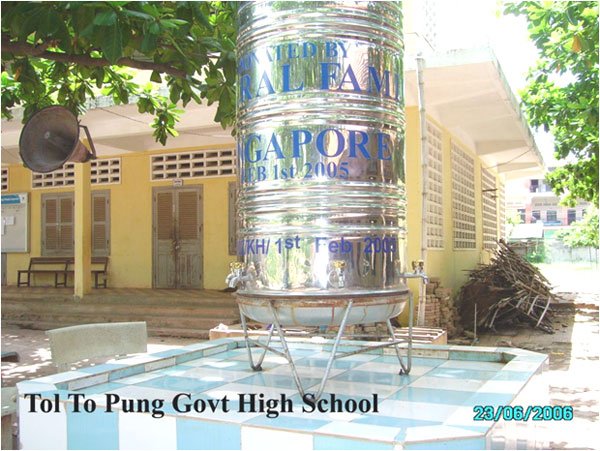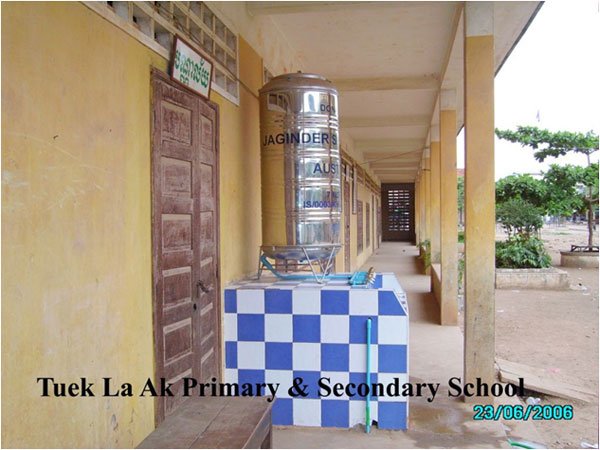Cambodia
Sandwiched between Thailand and Vietnam, Cambodia is a fascinating country with one of the amazing wonders of the world.
Oriented around the capital Phnom Penh and the famous temple site of Angkor the tourist trail in Cambodia is becoming increasingly well-trodden. But that has done nothing to diminish the wonder that visitors to the country experience. The Angkor temple quite literally takes your breath away. The entire site covers over one hundred square kilometers, and is packed with traditional Khmer structures that survived numerous invasions (by Thais and Vietnamese), bombings (by the US) and the destructive reign of the Khmer Rouge.
Back in the capital you’ll find a city that is rapidly changing. The influence of Western culture can be felt, there are thriving expat communities from all the European nations, but its effect isn’t as insidious as that over the border in Thailand. There are still dirt roads even in the city, and the focus remains on the capital’s magnificent Royal Palace.
In Phnom Penh you’ll also find the most moving testaments to those that died at the hands of the Khmer Rouge. The Killing Fields are an incredible sight, where tens of thousands met their death and were buried in mass graves. The simplicity of the displays of human remains seems amazingly appropriate as a memorial to the war dead.
But history, recent or ancient, can’t take away the fact that Cambodia is an incredibly beautiful country. Over half of it is covered in lush forest, or tropical wetlands. The massive central Tonle Sap Lake has whole communities living on its edge (the famous stilted villages) and even in the lake itself (the floating villages of the north). While the forests contain rare wildlife including large mammal’s elephants, tigers and rhino the waters of both coast and inland – including the mighty Mekong River – teem with fish life – including Kratie’s population of freshwater dolphins.
About Cambodia
Full name: Kingdom of Cambodia
Population: 16.54 million (UN, 2019)
Capital and largest city: Phnom Penh
Area: 181,035 sq km (69,898 sq miles)
Major language: Khmer
Major religion: Buddhism
Life expectancy: 59 years (men), 63 years (women) (UN)
Monetary unit: 1 riel = 100 sen
Main exports: Clothing, timber, rubber
GNI per capita: $1,380 (World Bank, 2018)
Internet domain: .kh
International dialling code: +855
Cambodia Vision 100
University of Cambodia, Cambodia Vision100 – The Samdech Techo Hun Sen’s Vision – 100 Scholarships as provided by UC
18 August 2008 (Phnom Penh) – The University of Cambodia will convene a press conference on Tuesday, August 19, 2008, starting at 2:30 p.m., at the conference room of the University of Cambodia in Phnom Penh. The press conference will provide a full briefing on Samdech Techo Hun Sen’s Vision-100 Scholarships for outstanding high school students who will be pursuing their university study this year.
The Samdech Techo Hun Sen’s Vision-100 Scholarships is a part of The University of Cambodia’s Scholarship Program aiming to reward exceptional students who have academically excelled in their high school studies and who will help promote exceptional human resource development in Cambodia. The Samdech Techo Hun Sen’s Vision-100 Scholarships will provide100 students full-tuition to pursue their academic studies at the bachelor degree level at The University of Cambodia, the most prestigious university in the country.
Funded by: Dr.Rikhi Thakral, Executive Director, Thakral Group of Companies, his colleagues, his family, and his friends.
“100 Top Students bestowed with Samdech Techo Hun Sen’s Vision-100 Scholarships,“
21 November 2008 (Phnom Penh) – Samdech Akka Moha Sena Padei Techo Hun Sen, Prime Minister of the Kingdom of Cambodia, has presided over, in the morning of 20 November 2008, an official ceremony for bestowing the Vision-100 Scholarships to 100 high school students who had passed their high school diplomas with A, B, C mentions, and who had been finally passed The University of Cambodia’s scholarship examination. This scholarship awarding ceremony was conducted officially at the National Institute of Education.
Among these 100 students who had received Samdech Techo Hun Sen’s Vision 100 Scholarships, there were 74 male students and 26 female students. They were the best students who will study at The University of Cambodia for their four-year degree programs. The scholarships were generously funded by Dr. Rikhi Thakral, Executive Director of the Thakral Group of Companies in Singapore, his family members as well as his colleagues.
In his “Welcoming Remarks,” Dr. Kao Kim Hourn, President of The University of Cambodia, revealed that this was the first time in the Kingdom of Cambodia that Dr. Rikhi Thakral and his family as well as his colleagues have funded the Samdech Techo Hun Sen’s Vision-100 Scholarships. The President of The University of Cambodia stressed that in the future these 100 top scholarship students would be, through their skillfulness and UC’s qualified study programs, the new intellectuals and young competent leaders for tomorrow will increase their capacity of understanding, knowledge and professional consciousness.
Dr. Kao Kim Hourn, President of The University of Cambodia, went on to say that at least 20% of these scholarship students would become heads of institutions, offices, information and technology firms, educational centers, and public or private institutions. And 30% others would be job producers for the communities. And other 50% of them will become the strong skilled labor forces for our nation and society.
With his thoughtful advice, Samdech Prime Minister reiterated that receiving the scholarship awards was not the end of the process on that day. It is only just the beginning of their studies. It does not mean a graduation. So, it would be wrong if the scholarship students considered that they were graduating already, without studying hard.
Samdech Techo stressed that the students should be audacious in their studies in order for them to gain their bachelor degrees during the period of four years. At the same time, obtaining their bachelor degrees does not mean the end of their studies. They should continue their studies as long as they live, because human lives have no end to their studies. Practically, Samdech Techo emphasized that even the supreme leaders, or leaders of all levels, for instance, the prime minister, deputy prime ministers, senior ministers, ministers, secretaries of state, undersecretaries of state, so on and so forth, have to continue their studies; otherwise, they could not work or perform well.
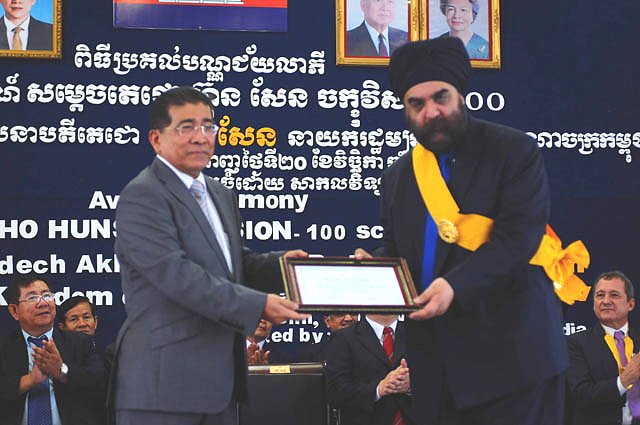
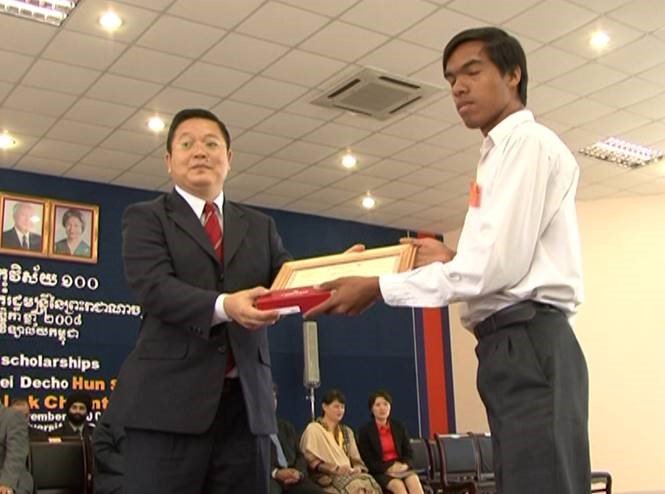
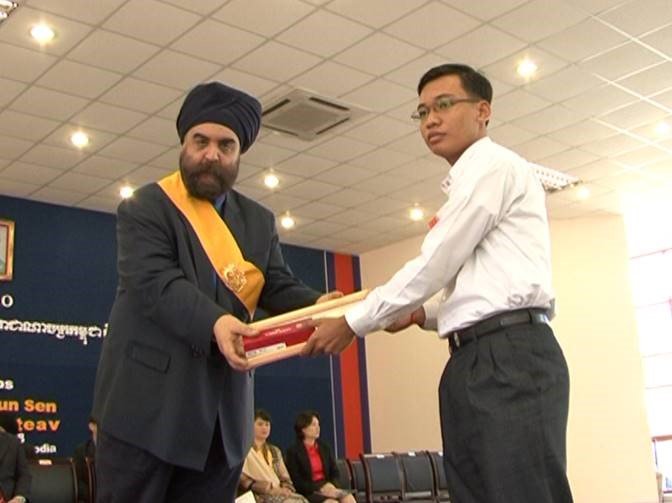
Children & Education
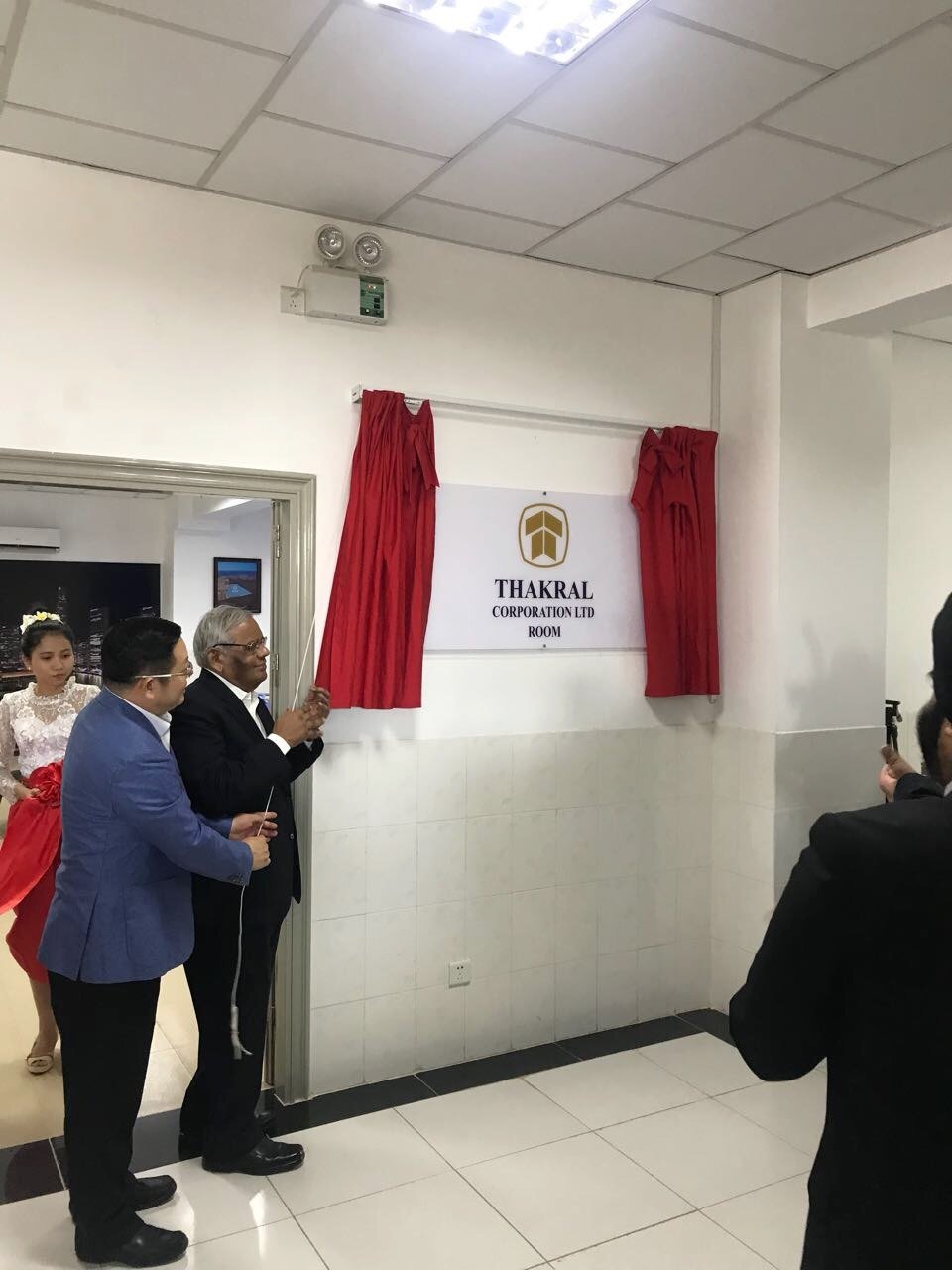
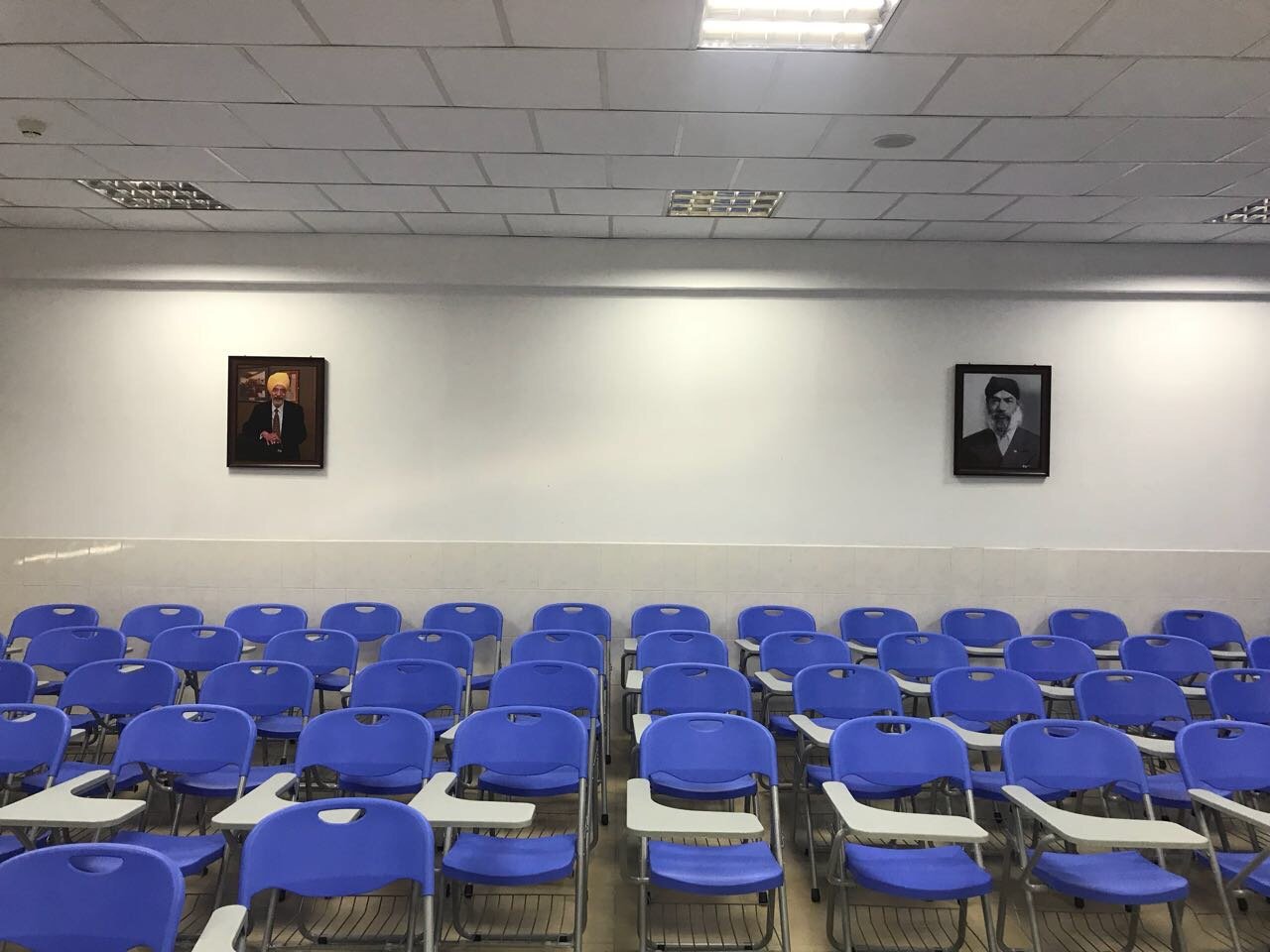
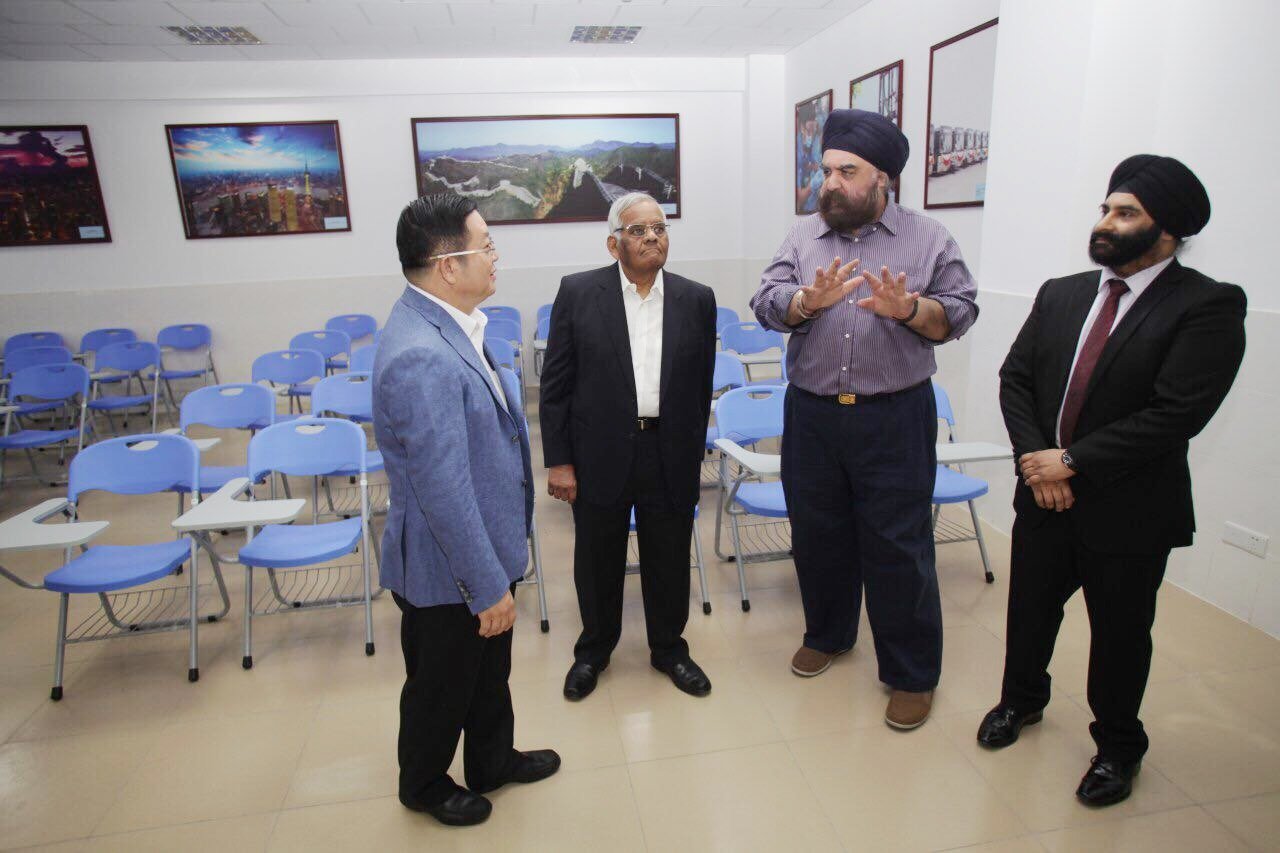
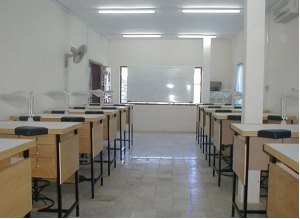
Emergencies & Special Projects
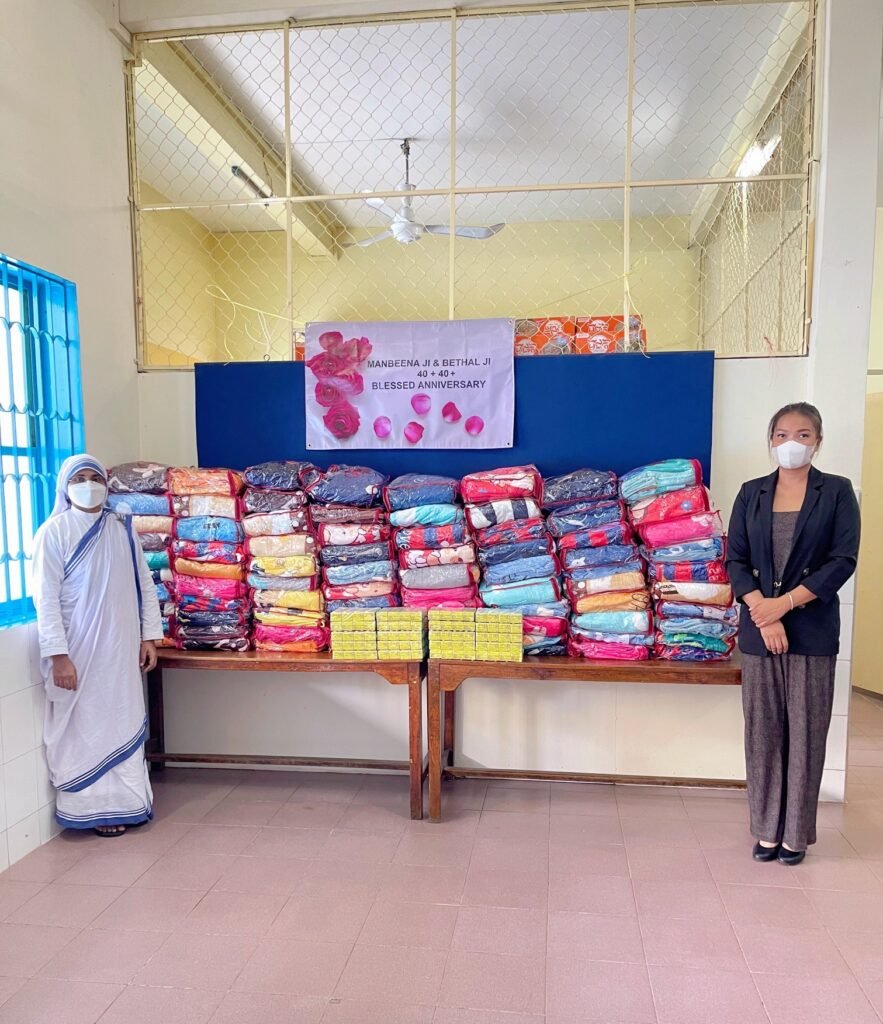
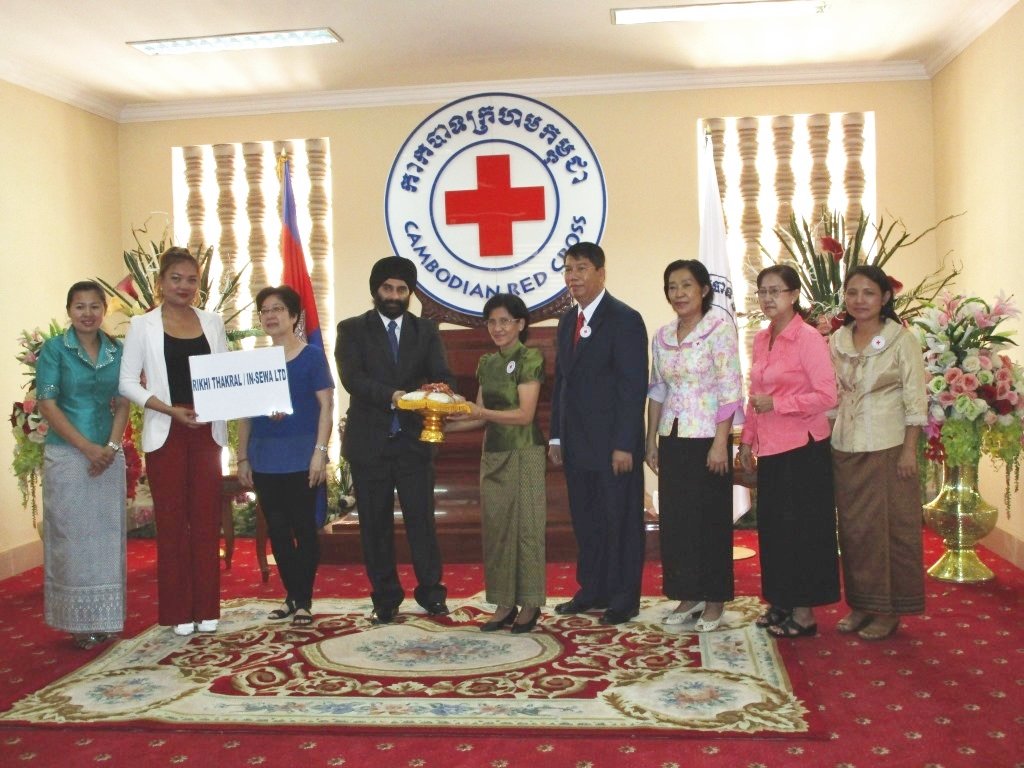

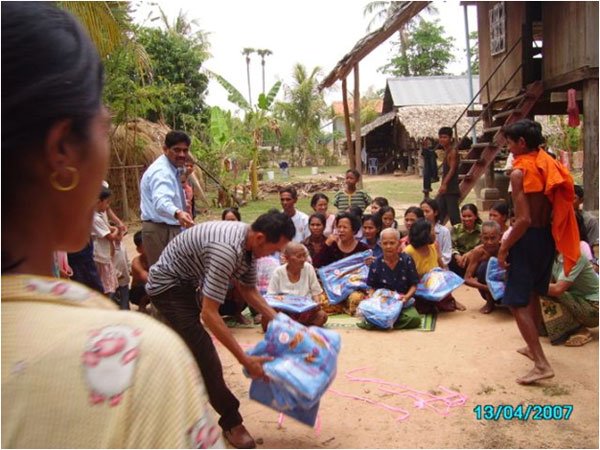
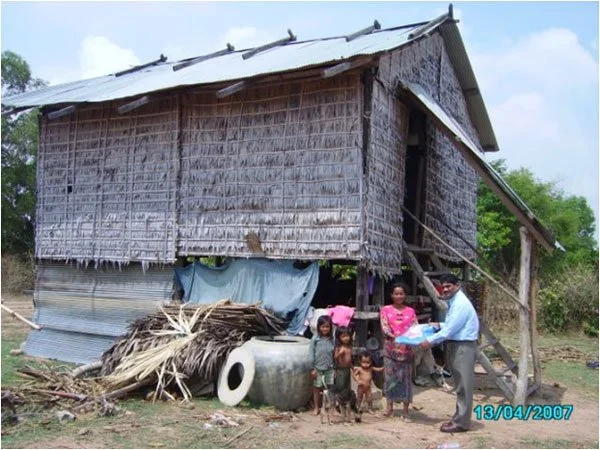

Food & Nutrition
Dr. Rikhi along with his son Nambir and Marin pay a visit to Missionary of Charity
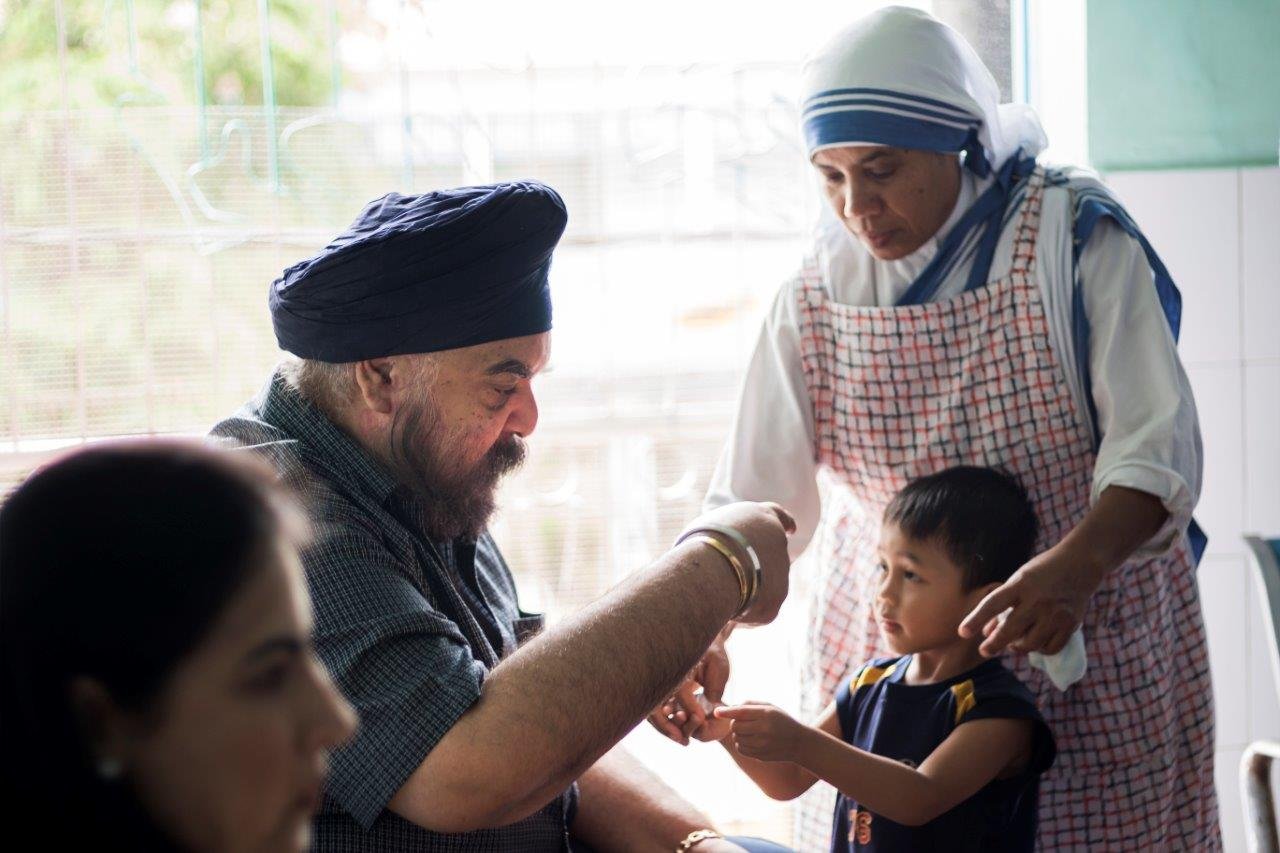
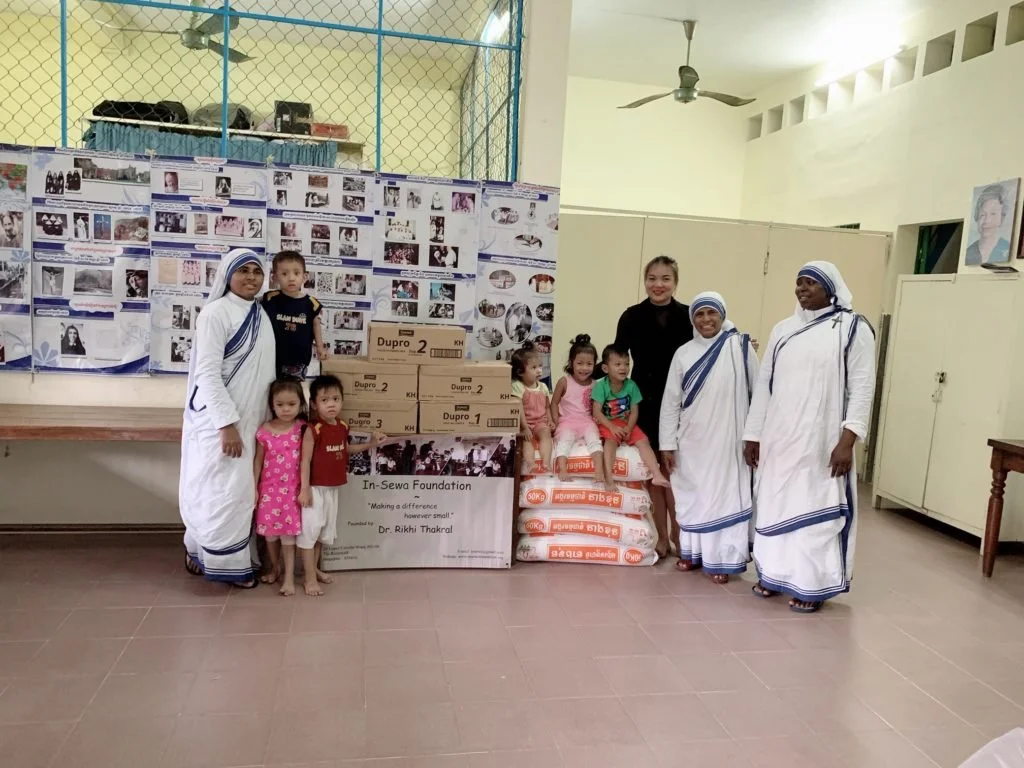
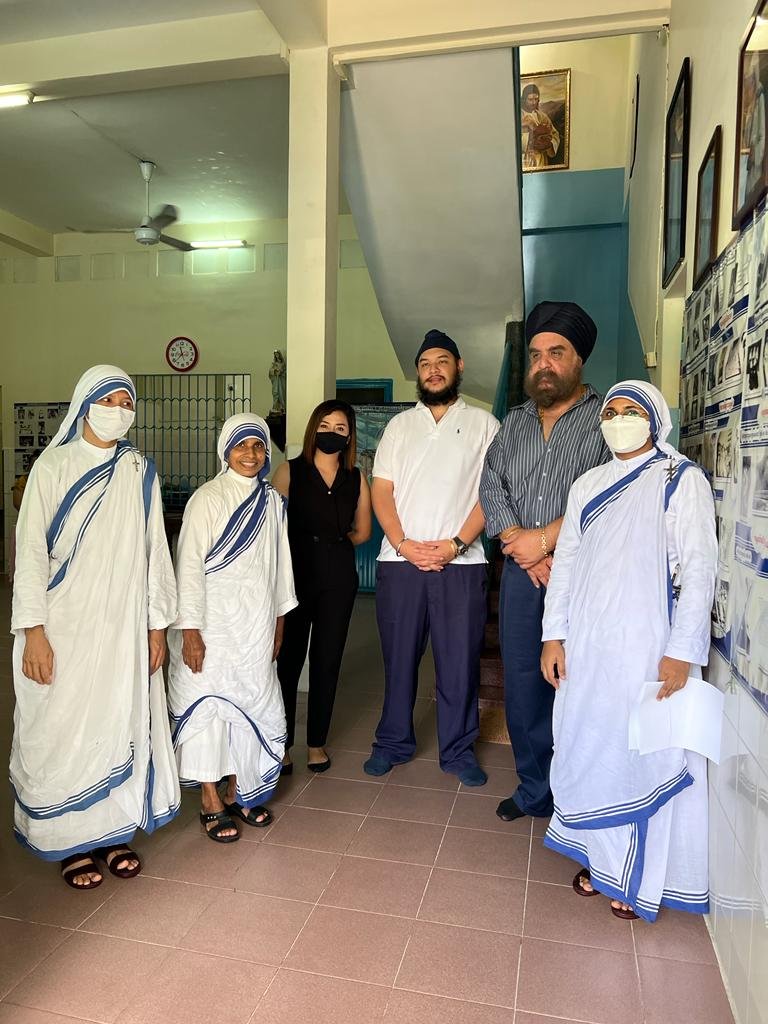
Water & Sanitation
